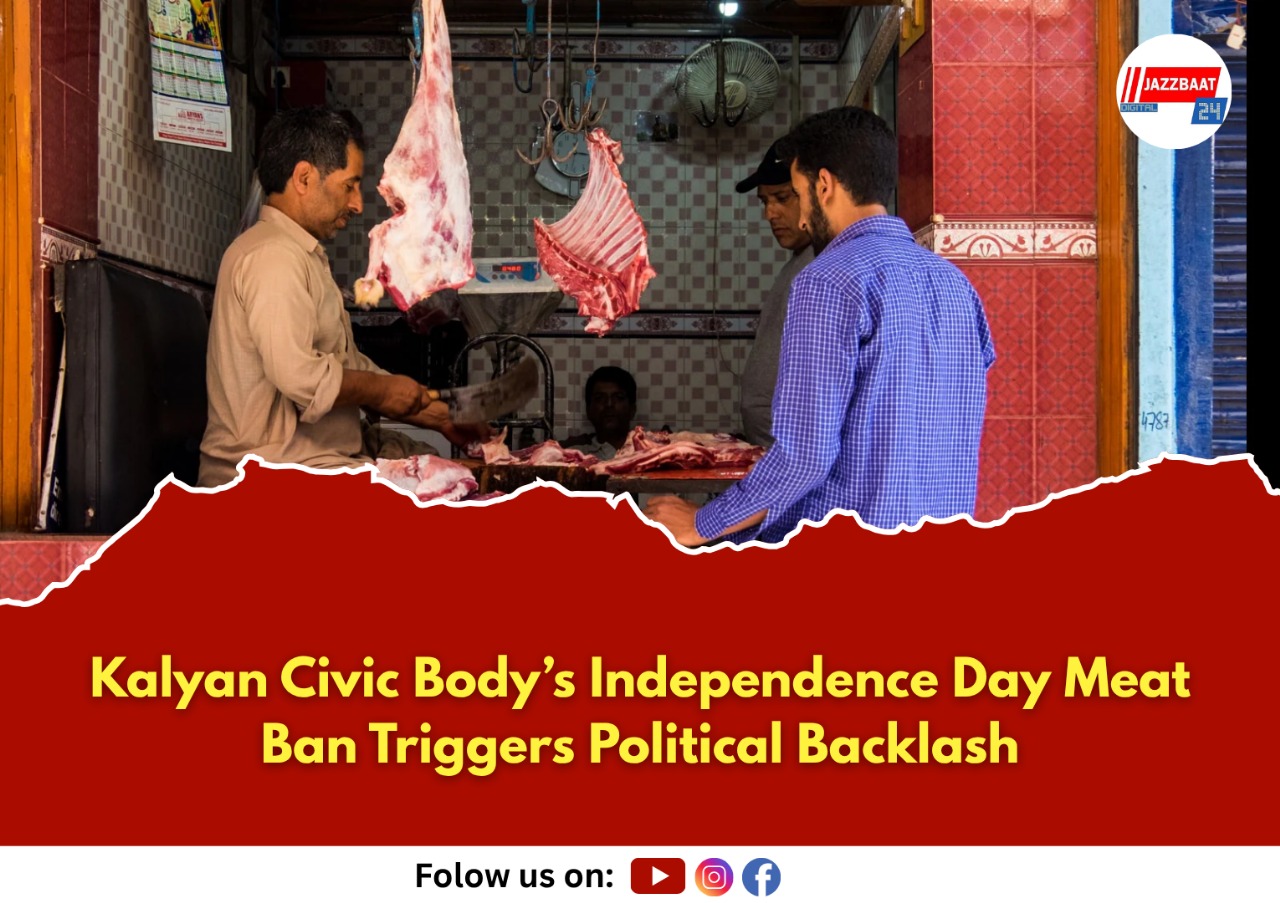
Kalyan:
The Kalyan Dombivli Municipal Corporation’s (KDMC) directive to shut all meat shops and slaughterhouses on Independence Day has ignited a political debate, with Opposition leaders criticising the move as an infringement on citizens’ rights to choose their food.
The civic body issued an order mandating that all licensed butchers and slaughterhouses dealing in goats, sheep, poultry, and large animals remain closed for 24 hours, from midnight of 14 August to midnight of 15 August. Officials said the decision was taken in line with past practices to observe the national day with certain restrictions.
NCP (SP) MLA Jitendra Awhad strongly opposed the order, terming it an unnecessary curb on personal freedom. “Food choice is an individual’s right. Independence Day is about celebrating freedom, and that includes the freedom to eat what one wishes,” Awhad said. He announced that he would host a “mutton party” on 15 August to symbolically protest the ban.
Leaders from the Shiv Sena (UBT) also voiced their opposition, arguing that the civic body should not dictate people’s dietary preferences. Party representatives accused the KDMC of taking a moral policing approach under the guise of public observance.
The KDMC, however, maintained that the order was part of a long-standing tradition in certain municipalities on national and religious occasions. “The closure is applicable to all licensed meat sellers and slaughterhouses without exception. It is in keeping with established municipal directives observed on specific days,” a KDMC spokesperson said.
The move has divided opinion among residents of Kalyan and Dombivli. Some supported the order, viewing it as a mark of respect on the country’s national day, while others saw it as an unnecessary intrusion into personal habits.
Awhad’s declaration of a public feast has drawn both support and criticism. Supporters say it underscores the broader debate about food autonomy in a diverse society, while critics argue that such protests politicise a civic order meant for a single day.
The issue also brings into focus the recurring tension between cultural or symbolic observances and the constitutional right to individual freedom. Legal experts point out that while municipal bodies have the authority to regulate businesses for public reasons, repeated restrictions on food sales during certain occasions often spark disputes in a pluralistic society.
With the ban scheduled to be enforced from the night of 14 August, both civic authorities and political leaders are bracing for public reactions on Independence Day. Whether the dispute will escalate into legal or street-level protests remains to be seen, but the controversy has ensured that the debate over food freedom and official mandates will remain in the public spotlight well beyond the national holiday.